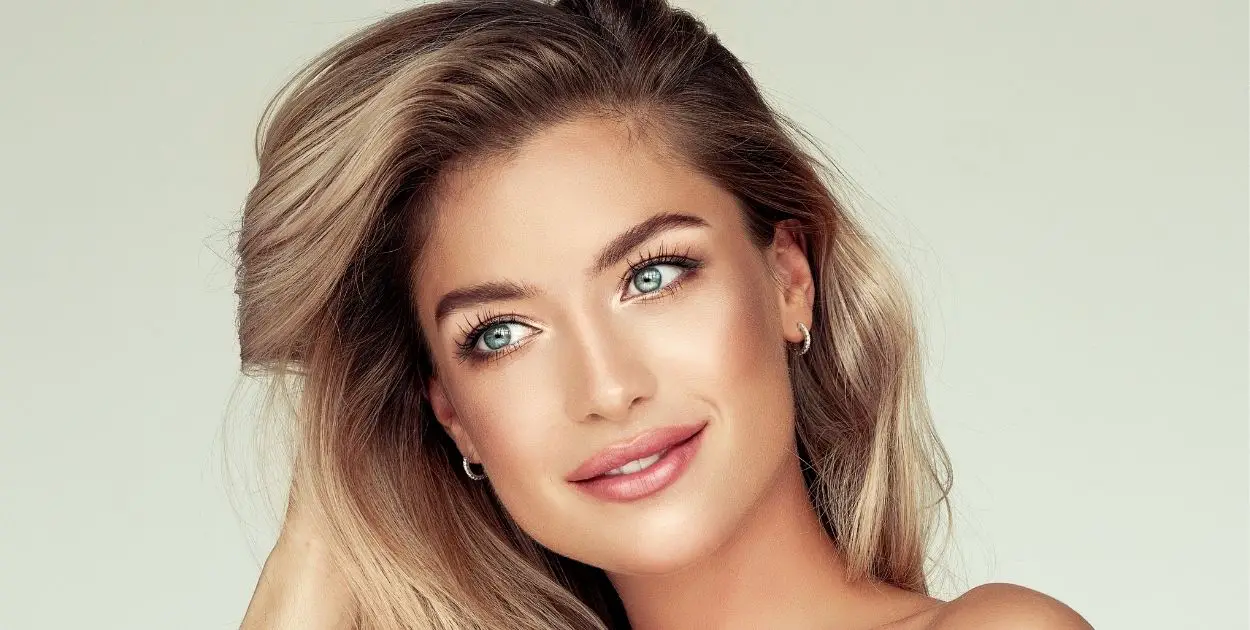It’s no secret that hair color changes can be a long and difficult process, and I guess you are wondering, can hair naturally change color. You could go to the salon, spend hours with your stylist, and still not get the desired results you were expecting.
Every day, we see new innovations in the beauty industry. From high-end makeup to designer clothes and hair color, there are always new trends to keep up with. But what if you found out that your natural hair is changing without you knowing it? Crazy right?!
Why Does Your Hair Change Color?
Certain factors must be in place for your hair to change color. One of these factors includes stress. Stress can cause an increase in hormones which can then lead to a chemical reaction on your scalp and cause it to release dyes into your hair follicles.
Exposure to certain chemicals such as chlorine or even copper from pipes that carry hot water has also been known to cause changes in natural hair coloration. Some foods have also been linked with causing changes in hair root pigmentation, but there’s no guarantee how much they will affect your coloring since everyone’s body reacts differently.
Is it Possible for Your Hair to Change Color?
Yes, hair color can change for many reasons. One common reason is the regular dying or bleaching of your hair. Dying or bleaching your hair too often can make hair lighter and more transparent over time.
Sun rays may also damage the hair and cause discoloration due to the breakage of the keratin fibers in the cortex (part of hair structure). The cortex also forms the cuticle layer of human fingernails and toes, as well as skin cells on other parts of the body such as knees or elbows
Why Does Blonde Hair Get Darker With Age?
The blondest kid in your grade school class will not be the only one to turn brunette by high school. Don’t get surprised anymore. Many people find out that their hair appears darker as they age.
The blonde hair color gets darker with age. According to research published on Science Mag, blonde hair color is a result of having blonde hair and little melanin in your locks.
There are two distinct types of melanin that contribute to the natural color of our hair – eumelanin and pheomelanin. Eumelanins are responsible for how dark your hair is, meaning that people with lots of it tend to have dark brown or black hair. Pheomelanin on the other hand determines the warm colors in your hair like red, yellow hues.
If you don’t like how your blonde hair is getting darker these days, you can try these steps how to prevent your natural blonde hair from darkening.
Can Hair Naturally Change Color from Blonde to Brown?
Similar to why blonde hair goes dark, blonde hair turns to brown because the number of eumelanin increases as you mature, and this makes your hair get darker.
Blonde hair color fades over time because they contain less pigment than other shades of hair. As we age, our skin also becomes thinner and more transparent, which can make it harder to maintain a youthful glow or hair color.
Why Does Hair Change Color from Black to Brown?
The most common reason for black hair to turn brown is exposure to the sun. As a result of the Ultraviolent A (UVA) and Ultraviolent B (UVB) radiation from the sun, the vitamin D in your hair is absorbed and transported to your scalp, resulting in a slight tan on your hair.
You can prevent sunburn by wearing a stylish hat or cotton cloth over your hair and carrying an umbrella.
Also, if you notice that the color of your hair is changing, you should investigate whether a particular product you are using is the cause. One of the ways that chemicals in hair products or other products affect your hair is by affecting the hair pigments and changing the hair color from black to light brown.
You can consider using natural hair products if you are experiencing any of these issues with chemical hair products.
Can Your Hair Change Color from Stress?
Some people may experience changes in hair colors due to the physical effects of chronic tension on their hair follicles. A new study from Columbia University Vagelos College of Physicians and Surgeons found a connection between psychological stress and changing of hair color or gray hair.
They were able to demonstrate that white/grey hairs naturally revert to pigmentation across sex, ethnic groups, ages, and body areas, quantitatively characterizing the reversibility of greying in people. Grey hairs upregulate proteins involved in energy metabolism, mitochondrial function, and antioxidant defenses at the molecular level.
Also, they were able to demonstrate hair greying and reversal that can occur concurrently with psychological stressors using HPP profiling and proteomics on single hairs. To generalize these findings, they created a computational simulation that reveals a threshold-based mechanism behind greying’s brief reversibility.
Can Food Help You Prevent Graying Hair?
Obviously, graying hair because of aging is not something you can stop unless you continuously dye your hair every time you see the growing roots showing up. However, according to Cooking Light, there are foods that you can eat to maintain your normal hair color for a longer time before it all turns out gray. Some of these foods include tangerines, fermented foods, salmon, eggs, and dark chocolates.
Each one of them has a specific nutrient such as copper levels, and that will help your body fight the process of graying hair or slow it down.
Conclusion
Hair is said to be our crowning glory. It enhances our beauty and boosts self-confidence. I guess you now have answers to what you were thinking about – can hair naturally change color?
It is interesting to know that it can change color for various reasons, from the sun down to your food intake, but don’t forget that it can also change back again! The only thing you should do now is to take great care of your hair.


